A young corruption investigator is killed in Afghanistan. Why didn’t his U.S.-trained agency do more to protect him?
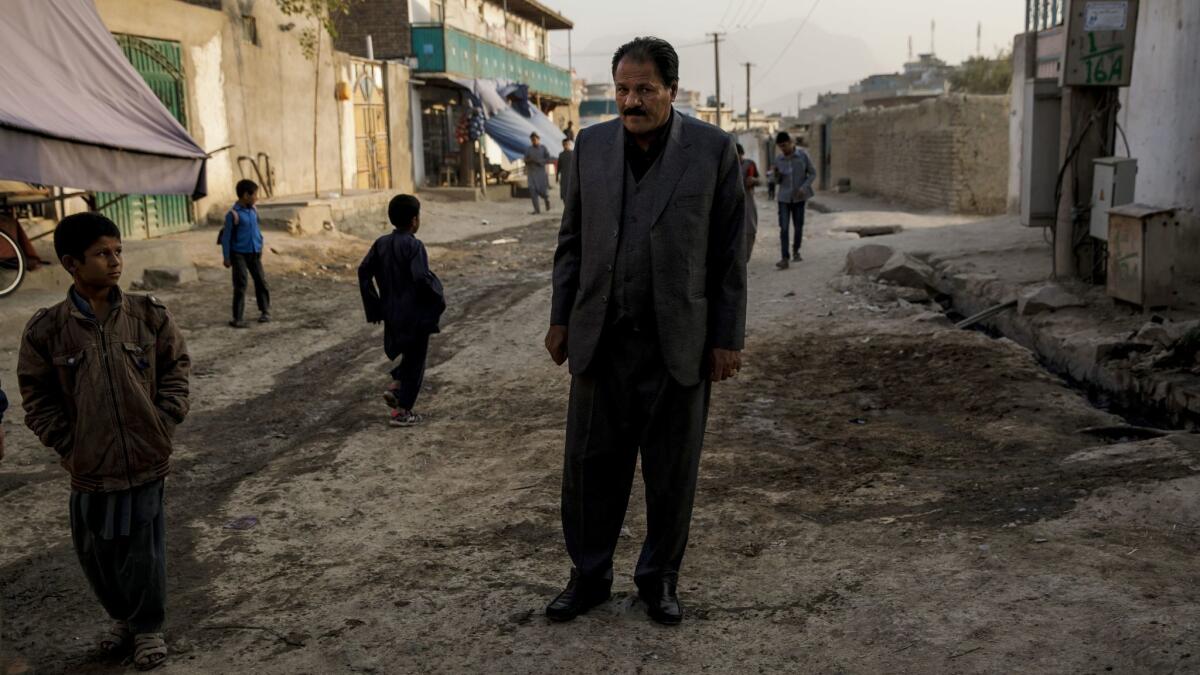
It was almost dark when Almar Habibzai, clad in his blue-gray police uniform, returned from work Oct. 15 and pulled into the driveway of his family’s house in east Kabul.
As the 22-year-old sergeant stepped out of his Toyota Corolla, he did not notice the two men who had followed him up the narrow dirt road on a motorcycle.
When Habibzai’s father heard gunfire, he raced out of the house barefoot. His lanky, mop-haired son had been shot three times in the back and was splayed on the ground, oozing blood.
The killers had already disappeared over the hill on their motorcycle.
Habibzai was a member of the Major Crimes Task Force, or MCTF, an Afghan police agency that investigates criminal networks and corruption cases involving high-level officials. After 16 years of U.S.-backed efforts to battle organized crime and establish the rule of law, corruption remains a national epidemic — and almost anyone who fights it vulnerable to retribution.
Habibzai was the fifth member of the 300-officer task force to be targeted and killed in the last two years, agency officials said. In April, two investigators were shot in their car in west Kabul while driving to work, a case that remains unsolved.
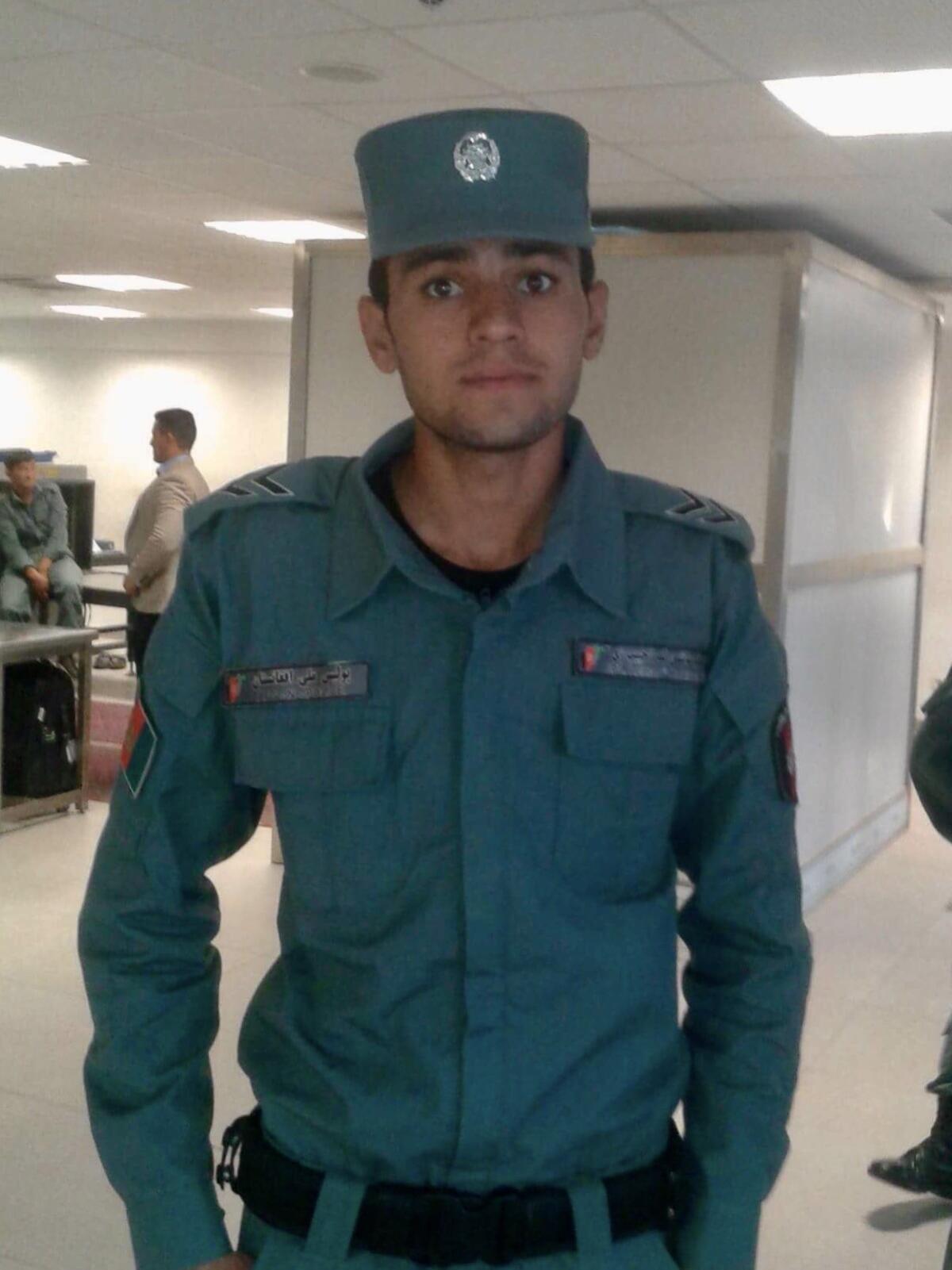
The task force was established by the Pentagon in 2009 with the goal of creating what U.S. officials called “the Afghan FBI.” Its investigators have been trained and supplied by Americans — first FBI agents and now civilian contractors overseen by the U.S.-led NATO mission here.
Five years ago, it was nearly shut down when then-President Hamid Karzai blocked investigations of his top aides. But the force has shown newfound aggressiveness under President Ashraf Ghani, opening 112 corruption investigations and arresting 148 suspects in 2016, according to the special inspector general for Afghanistan reconstruction, a U.S. watchdog.
“The MCTF investigators are the most professional investigators I’ve worked with in counter-corruption,” said Brig. Gen. Clayton W. Moushon, the former director of rule-of-law programs for U.S. forces in Afghanistan. “They’re highly motivated, they never back down — and they’ve paid the price.”
The killings have ignited debate within the task force over whether its leadership has done enough to protect personnel. In September, the U.S. Embassy donated 300 antiballistic vests to the agency, but three Afghan officials said in interviews that most were never distributed, so Habibzai never got one.
The special inspector general’s office said in its most recent quarterly report that morale was “at an all-time low” among the investigators, who “feel they do not receive the support and protection from senior Afghan government officials necessary to operate without reprisal.”
Habibzai grew up in a law enforcement family — his father, Col. Haji Habib Rahman, is a 36-year veteran of the police force, specializing in counter-narcotics, and an older brother a prosecutor — and had long dreamed of being a cop.
He joined the anti-corruption force less than a year ago, straight out of the police academy, and was assigned to a surveillance team that tracked cellphone calls, said his supervisor, Lt. Col. Nangialay Toofan. It was not a high-profile position, but his uniform marked him as a target during his half-hour commute to and from the unit’s offices on the outskirts of Kabul.
Habibzai seemed concerned about his security, his father said.
“He never told us, but we knew he was worried,” Rahman said. “When he came home, he changed out of his uniform and stayed in the house. He never went out with friends to socialize. He stopped going to weddings. It was just home, work, home, work. He watched his back.”
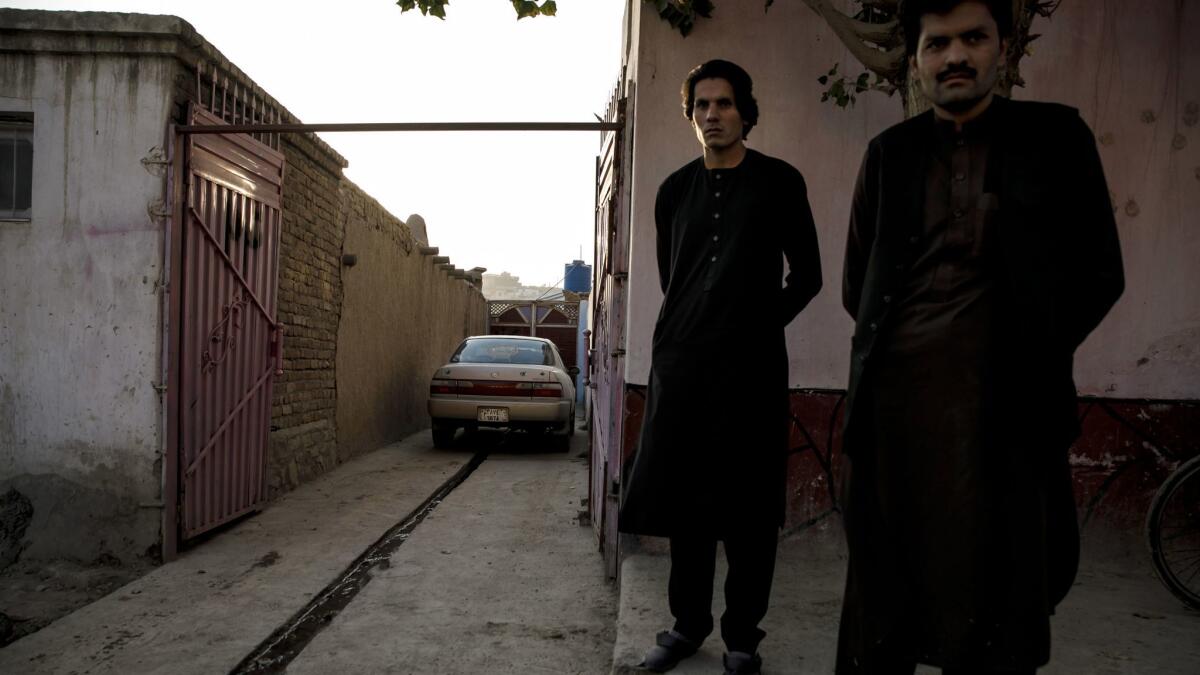
This year, the force’s work was thrust into the spotlight when an affiliated anti-corruption court launched by Ghani began allowing the public to observe its proceedings in graft cases. A chief executive of a prominent oil company and the former army and police commanders in Helmand province were among those convicted and sentenced for embezzlement, misuse of power and other crimes.
Those successes raised the threat to law enforcement officers, most of whom travel without security and in ordinary vehicles through a city increasingly beset by gangs, kidnappers and insurgent attacks.
After the April shootings, Ghani ordered extra security personnel and armored vehicles to protect high-level staff of the task force and anti-corruption court. The government has promised to build a secure housing complex for officers, but the project has yet to receive funding, officials said.
In interviews, several rank-and-file task force members accused the head of the force, Gen. Abdul Ghayor Andarabi, of mismanagement that has left officers more vulnerable.
Col. Mohammad Nabi Majrooh, the force’s deputy chief, said he didn’t know why the bulletproof vests had not been distributed, but he blamed Andarabi. “They are sitting in storage,” he said.
A U.S. official said that given the threats facing officers, “any delay of delivery would be cause for concern — that is why attempts were made to deliver the vests expeditiously.” The official declined to be named, citing diplomatic protocol.
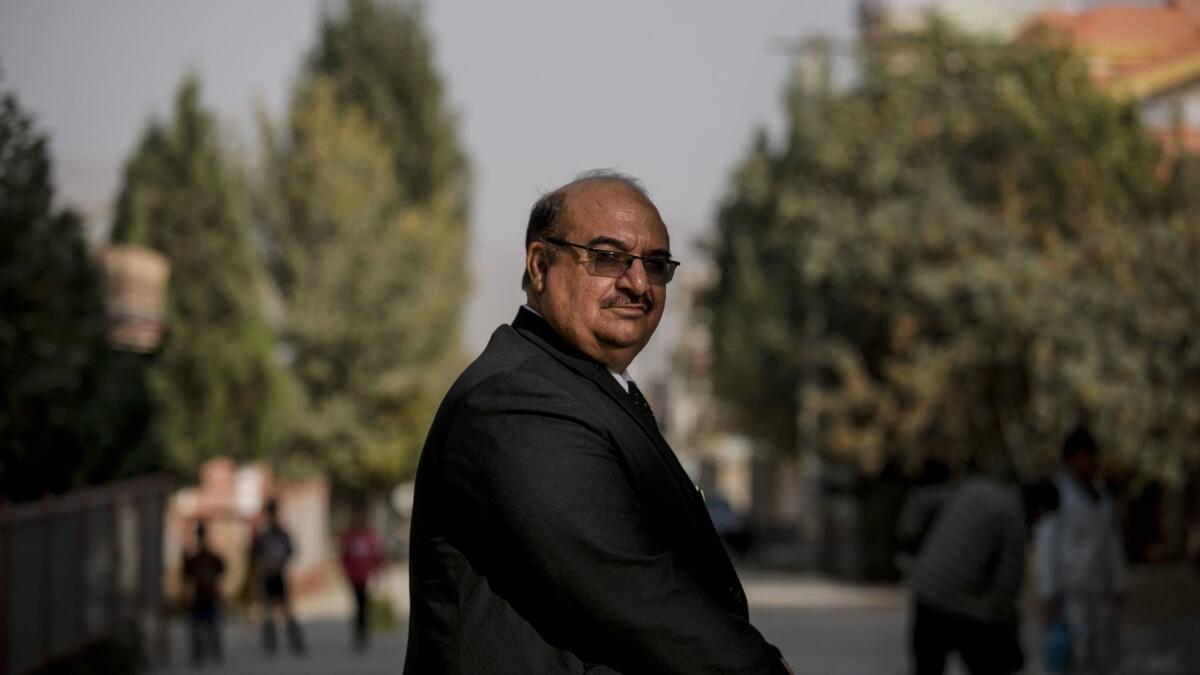
In October, U.S. officials invited Majrooh to the embassy alone to discuss reports of discontent in the task force. When Andarabi found out about the meeting, he tried to fire Majrooh, alleging in a letter that U.S. civilian advisors had developed suspicions about him. In a written response, the Interior Ministry’s chief of staff rejected the explanation and reinstated Majrooh. The Times has seen copies of the correspondence.
Reached by phone, Andarabi declined to comment, citing “the sensitivity of my position.”
The U.S. government has spent more than $4 billion on law enforcement and counter-narcotics programs in Afghanistan since 2002. But as its military presence has shrunk and security in Kabul has deteriorated, U.S. officials have less oversight over programs.
Civilian trainers visit the task force weekly and summon top officials for regular meetings. Moushon, who recently completed a yearlong tour in Afghanistan, said Andarabi and his team had done “a very good job.”
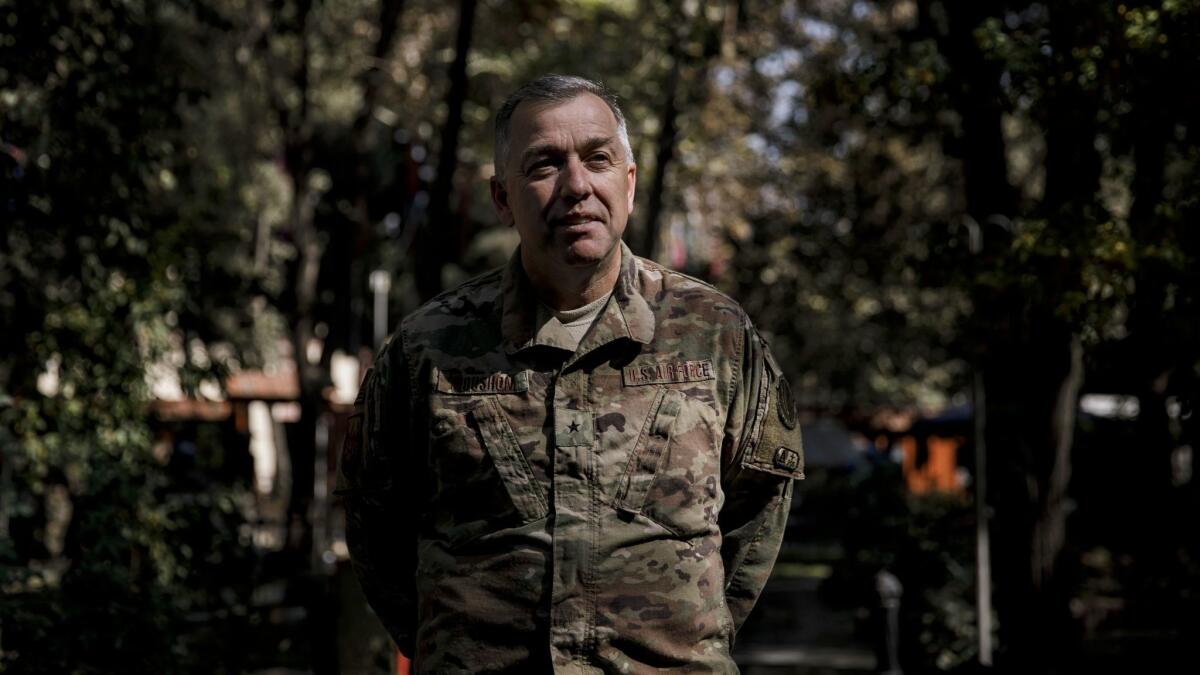
Three days after Habibzai was shot, he died in a hospital. His killers remain at large.
After the shooting, Toofan visited the crime scene and took statements from witnesses who said they saw the men on the motorcycle. But two task force officials said the case has stalled, and Habibzai’s family members said investigators have not contacted them about the incident.
Habibzai’s supervisors said that he lived in an unsafe neighborhood and that his killers appeared to have watched him. They struck during a week when the police officer who is normally posted outside Habibzai’s house — part of his father’s security detail — was on vacation.
“That area is controlled by mafias,” said Toofan, Habibzai’s boss. “They don’t want anyone interfering in their work.”
Times staff photographer Marcus Yam and special correspondent Sultan Faizy contributed to this report.
Follow @SBengali on Twitter for more news from South Asia
Sign up for Essential California
The most important California stories and recommendations in your inbox every morning.
You may occasionally receive promotional content from the Los Angeles Times.








